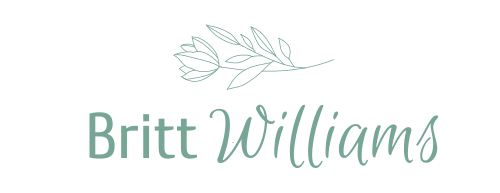Dairy-Free Milk Alternatives For Toddlers

Dairy-free Milk Alternatives For Toddlers
It’s hard to believe how quickly my baby Olive is growing up! The first year has been such an exciting time with so much change. Including some major transitions! When babies turn 12-months-old most pediatricians recommend transitioning from breast milk or formula to cows milk. This is an exciting milestone into toddlerhood! At this point, they eat more table foods and rely less on milk for nutrition. As parents, we have to decide what type of milk supplement is best for our little ones. Some children have an intolerance to dairy, while other moms like myself prefer a plant-based alternative that offers the same benefits to support supplemental nutrition. Luckily, there are many great dairy-free milk alternatives for toddlers.

First I wanted to make sure a dairy-free milk alternative was a responsible option. When I went to Olive’s 12-month check-up I asked our pediatrician why it’s recommended that toddlers drink cows milk. She told me toddlers between the ages of 1 and 2 have a greater need for fat, protein, and vitamins to support their rapid growth. Transitioning toddlers to dairy milk has been standard practice for a very long time to make sure they are getting an adequate amount of protein, calcium, and vitamin D. I quickly learned dairy-free options can provide the same benefits.
Dairy-free milk alternatives can be a great option
I asked her pediatrician if a non-dairy alternative would be an option? She said “absolutely.” She said toddlers should be consuming protein, calcium, and vitamin D from food, therefore milk is only secondary and should be used as a supplement to make sure they are getting adequate nutrition. Since it can be difficult to get children to eat a well-rounded healthy diet, milk is recommended to fill any potential nutritional deficits. Therefore, any milk alternative is fine as long as she is eating balanced nutrition!
There’s plenty of calcium in leafy greens, beans, fortified juices oranges, nut butters, tofu, and other foods! We’re lucky Olive eats a well-rounded diet so a plant-based milk would be a great supplement to ensure she’s getting all recommended nutrients.
I began researching every dairy-based milk available. Almond, Soy, Hemp, Flax, Hazelnut, Oat, you name it!
MYTH: Kid’s need to drink cow’s milk
Studies show that kids who don’t drink cow’s milk are just as healthy as those who do. What’s more, plant-based milks contain many of the same nutrients found in cow’s milk without some of the negatives, like high saturated fat and indigestion. So if you and your family are not big milk drinkers, have an intolerance to milk, or you prefer a plant-based milk like we do, no need to worry!
Which dairy-free milk alternatives are best for toddlers?
There are many options out there! Every plant-milk has benefits to offer over traditional milk, but some are not a complete solution. The right choice for your toddler depends on age, weight, and potential food sensitivities. Always check with your child’s healthcare provider. After researching all the dairy-free milk alternatives available, the following are the two we keep in our fridge! I also included other milk alternatives that may be the best option for your family.

Hemp Milk
Unsweetened hemp milk is a staple in our house. Hemp milk is a nutritious milk alternative rich in plant-based protein. It’s made from hulled hemp seeds and water. Hemp milk contains many of the same nutrients found in cow’s milk at lower levels and is packed with omega-3, omega-6, calcium, potassium, vitamin A, vitamin B12, vitamin D, iron, magnesium, zinc, and more! It also contains all 10 essential amino acids, making it one of the few complete protein milk sources available other than dairy.

This is a great milk alternative when coupled with a nutrient-rich diet. I make an easy homemade hemp milk, if you buy in-store just be sure to look for an unsweetened version. I offer 4 oz a few times a day!
Protein Almond Milk
We buy the Orgain protein almond milk because it’s made with organic pea protein. This is a great option for busy toddlers that may not be getting enough protein from their diet. It also offers 25% of the daily value of calcium and vitamin D. I typically offer 4 oz in her sippy cup a couple times a day.
Pros and Cons of Other Non-Dairy Milk Alternatives
Soy Milk
Soy milk offers an adequate amount of protein and calories. If soy milk is your alternative choice, choose an unsweetened version that’s fortified with calcium and vitamin D. Some parents worry about their kids eating too much soy while others may have a soy allergy. It’s been shown that approximately 40% of children who are allergic to cow’s milk are also allergic to soy milk. Always check with your healthcare provider.
Rice Milk
Parents often choose rice milk because their toddler has already had rice cereal so it seems like a trustworthy choice. This might not be the best choice for your growing toddler because compared to other dairy-free alternatives, rice milk is low in many of the recommeneded nutrients they need to grow and thrive, including protein, fat, calories, as well as vitamins and minerals. If your child is already drinking rice milk or this is your alternative of choice make sure your little one is eating a healthy diet including protein, calcium, healthy fats, vitamins, and minerals.
Almond Milk
Almond milk is a delicious drink, but low in many of the nutrients your toddler needs including protein and fat, therefore, may not be the best choice as a sole supplement to dairy. Protein-enriched almond milk may be a better alternative!
Coconut Milk
Coconut milk contains nearly half the daily requirement of Vitamin B12 and one-third of the daily Vitamin D necessity. Therefore it’s a great (and tasty!) beverage to incorporate into their diet, but adding other alternatives as well may be best. While coconut milk is rich in fats and other vitamins, the proteins and calcium is much lower than traditional milk and other dairy-free alternatives.
Tips for incorporating a dairy-free milk alternative into your toddlers diet
Look for unsweetened milk alternatives
Many milk alternatives have added sugar. It’s best to opt for the unsweetened versions as added sugar provides no nutritional benefits and can affect their preference for sweetness.
When starting a milk supplement try mixing milk with formula or breastmilk
If your child doesn’t initially take to the change of flavor when switching to milk, try adding a couple ounces of breastmilk or formula to the milk alternative you choose. Slowly decrease the amount of formula or breastmilk as they adjust to milk. You can choose to warm the milk if your toddler is used to warm or room temperature formula/breastmilk until they get used to cold milk from the refrigerator.
Provide other foods rich in calcium and vitamin D
When choosing a milk alternative, but sure to offer your toddler plenty of foods high in calcium, vitamin D, protein, and fat including beans, dark leafy greens, avocado, nut butters, tofu, and enriched cereals and bread. Additionally if tolerated and acceptable within your families diet, eggs, cheese, and plain yogurt.
Offer your little one up to 24 ounces of milk per day
When they drink breastmilk or formula 3-4 bottles is recommended, but when transitioning to milk or milk alternative 2-3 small glasses a day is all that’s needed and no more than 24 ounces.
As always, consult with your child’s healthcare provider about the type and quantity of milk to give your little one!
Let me know in the comments if you use a milk alternative or which one you tried for your babe!
– Britt Xx







